SJOG takes part in Social Housing Allocation Consultation

SJOG has recently responded to the Government’s consultation on Social Housing Allocation which ran from January to March this year.
The consultation applies to the Social Rented Sector (SRS) and proposes changes to the allocations system so that it prioritises those who have a strong connection to the UK, their local area and those that do not disrupt communities through anti-social behaviour or terrorism offences.
At SJOG we are aware that in 2022-23 only 9,561 social homes were delivered in England, compared to nearly 40,000 in 2010 (according to NACCOM) and we understand the current pressures on social housing to ensure that allocation is prioritised to those who are most eligible, due to a lack of housing supply.
However, homelessness is currently at record levels. Recent data published by DLUHC has revealed a significant rise in rough sleeping in England, particularly amongst asylum leavers and migrants from outside of the EU, with 7,072 people shaving slept rough over the month of December 2023 - an 18% increase on December 2022.
It is of particular concern that vulnerable migrants who are subject to immigration control are excluded from homelessness assistance, and therefore from housing support. Additional language barriers, a lack of understanding of the housing market, financial constraints, and a lack of local authority support to accessing the private renting sector also contribute to a perpetuation of unstable living conditions.
In response to the consultation, we recommended:
- that vulnerable migrants at risk of homelessness (such as retired or incapacitated workers), with limited right to remain, who cannot be in employment nor entitled to Universal Credit, should be entitled to housing allocation, in addition to welfare policies and immigration support.
- the housing allocation cap should be in place for those who cannot demonstrate local connection but are at risk of harm/homelessness, such as people subject to modern-day slavery and trafficking, newly granted refugees and people discharged from hospitals in recovery settings.
- to exempt people who are entitled to PIP, Disability Living Allowance and Pension Credit from an income test, as well as people subject to modern-day slavery and trafficking who are given limited leave under Appendix Temporary Permission to Stay for Victims of Human Trafficking or Slavery of the Immigration Rules.
Feedback from the consultation is due to issued later in the year.
A better understanding of latest Social Housing regulations and their impact on homelessness prevention strategies can be found in our Policy Paper from September 2022: https://sjog.uk/pdf/Research/Social-Housing-Policy-Paper.pdf
April 2024
Autism Acceptance Month
April 2024
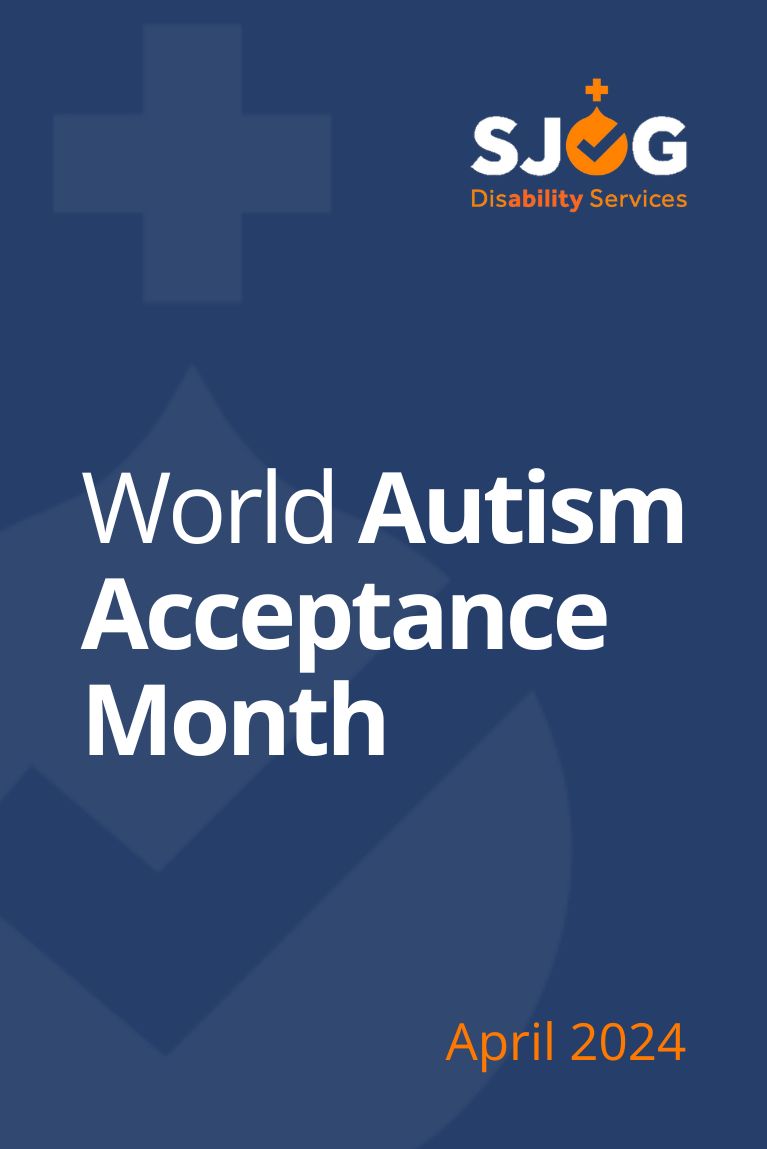

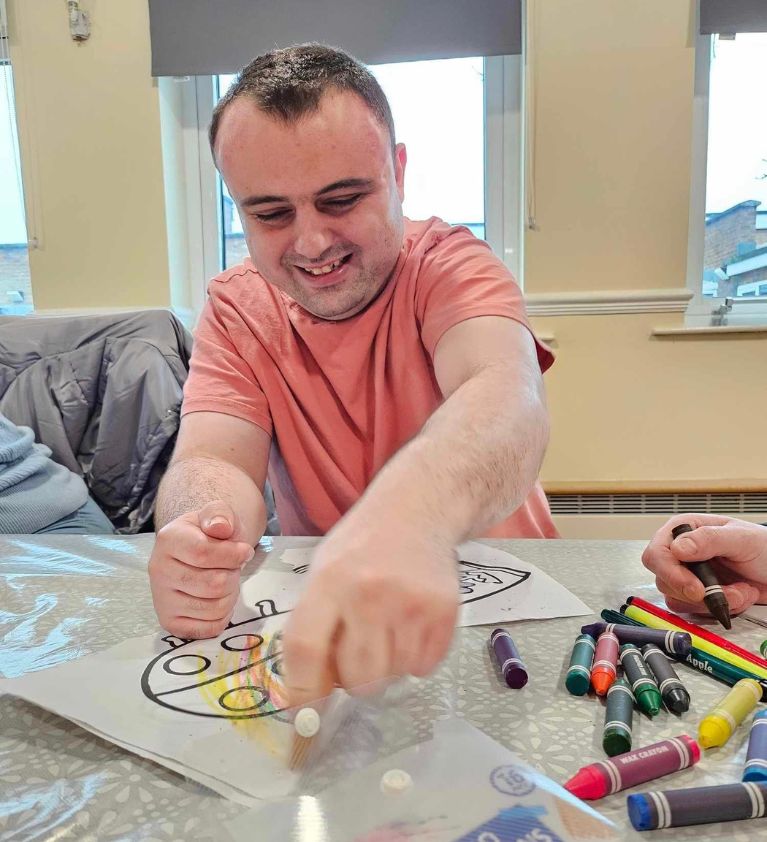
Autism Acceptance Month runs throughout April and is an opportunity to raise awareness about autism, to promote acceptance, and to celebrate the achievements and contribution of people with autism.
Autism is a lifelong disability that affects how people communicate and interact with the world. In the UK, there are 700,000 autistic adults and children, and raising awareness of autism will help their acceptance in our communities and workplaces.
Autism is a spectrum disorder which means people with autism can have varying support needs. One third of people with autism also have a learning disability.
Some autistic people will have high support needs, which may mean that they require full time care and support. Some people may need a bit of support with day-to-day activities, while others live fully independent lives.
With the right support in place, all autistic people should be able to live the life they choose.
At SJOG, 39% of the people we support in our learning disability services are autistic. To deliver the highest level of support and understanding, 96% of our colleagues across our autism services have an Autism Level 2 qualification and 67% of our operations and service management colleagues have a post graduate degree in autism, and leading our operations, we have Dr Lisa Alcorn with a doctorate in autism and positive behaviour support, who says, “One of my many responsibilities is to not ‘fix’ people with autism, but to create inclusive and capable environments so that people can thrive.”
Follow us this week on Facebook and LinkedIn for a month of autism-related posts: www.facebook.com/SJOGUK and https://www.linkedin.com/company/saint-john-of-god-hospitaller-services
April 2024
World TB Day - 24 March 2024
Yes! We can end TB
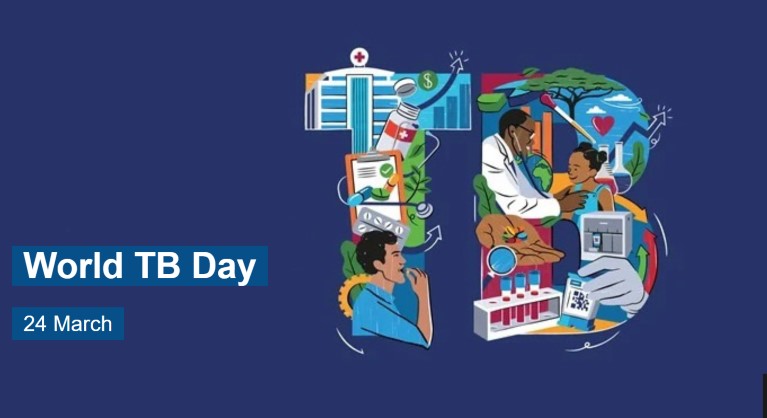
World Tuberculosis (TB) Day, 24 March 2024, continues with the theme “Yes! We can end TB”. Organised by the Word Health Organisation (WHO) it provides an opportunity to raise awareness, and also the opportunity to renew commitment, inspire and take action to end TB.
TB is still one of the world’s deadliest diseases with around one quarter of the world’s population infected. In recent years, there has been a worrying increase in drug-resistant TB.
Drug-resistant TB is most prevalent among people with social risk factors, including homelessness, especially rough sleepers who are more likely to be infectious and less likely to complete their treatment.
As part of our commitment to raising awareness, SJOG’s Chief Development Officer, Dr Jamie Mackrill presented at a conference organised by Leicester, Leicestershire and Rutland (LLR) TB Nursing Service which provided a day of focused learning, networking and collaboration to develop actions for addressing the challenges of TB in the LLR area and share innovative and effective practices to deal with the growing TB caseload.
Dr Jamie delivered a presentation on our work at Olallo House in tackling TB among street homeless people.
It is almost 11 years since we welcomed the first guest with TB at Olallo House and became a small but crucial part of the support structure that contributes in the fight to eliminate TB. Providing specialist medical, social and psychological support enables homeless patients to complete their full course of treatment and address other issues that have contributed to their homelessness.
Treatment for drug-resistant TB can take up to two years.
Please support Olallo's work:
As we mark World TB Day and celebrate our work at Olallo House supporting some of the most vulnerable TB patients through their treatment and with the other complexities of their lives, we continue to seek funding to complement their treatment package. Please donate and help us to help people rebuild their lives: https://www.justgiving.com/campaign/SJOGOlallo
March 2024
SJOG
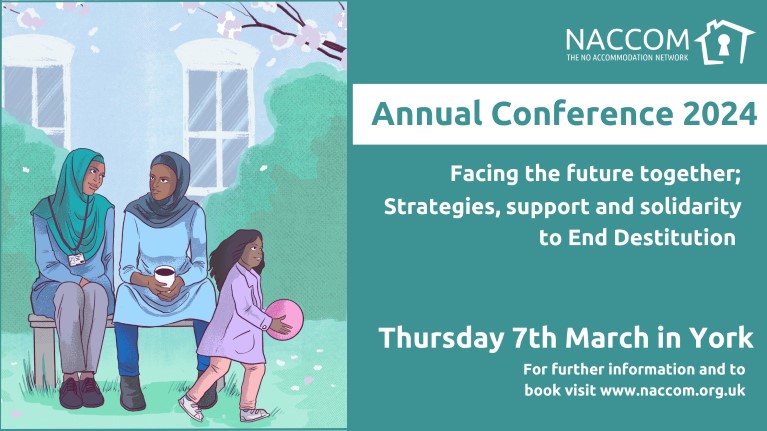
Last week on 7 March, SJOG’s Policy and Research Officer, Ioana Brezeanu presented at NACCOM’s Annual Conference held in York, the theme of which was ‘Facing the future together; strategies, support and solidarity to end destitution’.
Over 140 delegates representing 65 organisations attended the one-day event, which aimed to promote learning, good practice and solidarity across the NACCOM network.
During the day, delegates had the opportunity to participate in a series of practical workshops on topics including building lived experience representation and developing accommodation projects.
Ioana took part in one of the day’s workshops: ‘Working with people with complex needs’ and discussed the work carried out in one of SJOG’s homeless service in London – Olallo House.
Together with frontline charity leaders, they reflected on how to navigate the complex challenges faced by people who experience homelessness and destitution, and in particular those with No Recourse to Public Founds (NRPF); with the need to address accessing support and moving on independently.
Some of the topics explored can be found via Padlet Activity - Complex Needs, which is open to consultation. The outcomes will result in the development of resources and information to support NACCOM members in working with people with complex needs.
March 2024
SJOG receives DHSC funding to launch suicide prevention project
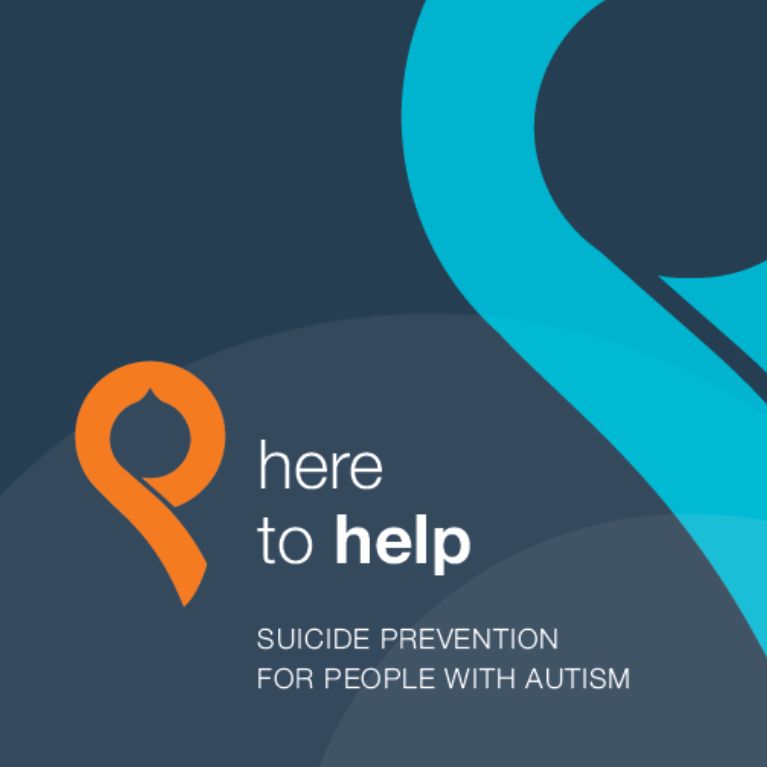
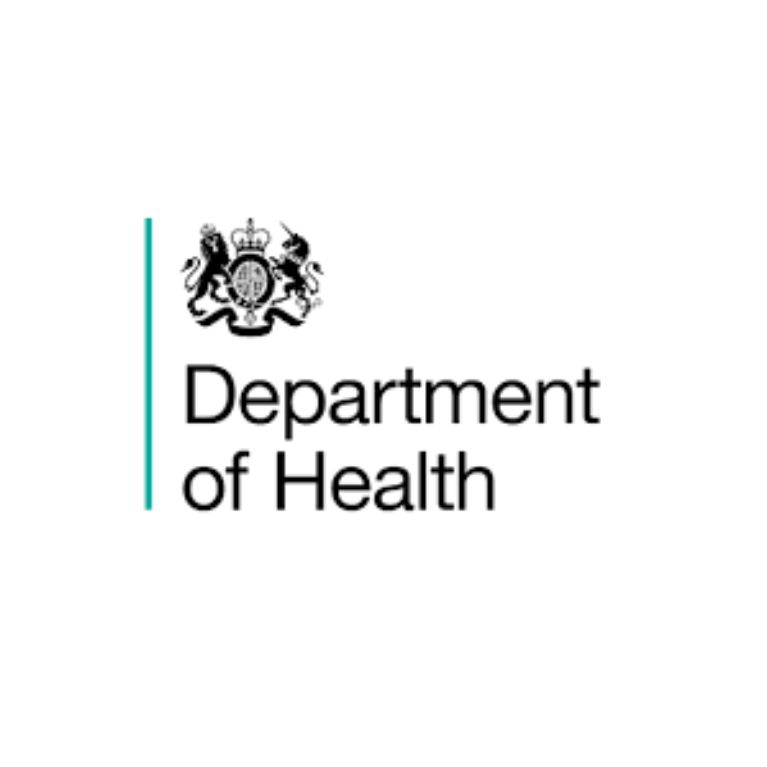
The Department of Health and Social Care (DHSC) has made available a £10 million grant fund to support suicide prevention activities delivered in England by voluntary, community or social enterprise (VCSE) organisations in 2023 to 2025.
SJOG is amongst a number of organisations to be funded.
The funding will fuel the launch of ‘Here to Help’ - a new initiative focused on suicide prevention among people with autism in Teesside.
1 in 100 people are autistic in the UK – totalling more than 700,000 individuals. People with autism are 9 times more likely to die of suicide.
SJOG has been working with people with autism to provide the information and interactive resources they, and their family, friends, carers, schools, employers and universities across the Tees Valley local authority area need.
Dr Lisa Alcorn, Chief Operating Officer, said, “This project represents a crucial step forward in addressing the heightened risk of suicide among people with autism. Our goal is to provide comprehensive support and resources to those in need.”
The project is due to be launched in early summer 2024 and will also involve local charity MAIN.
More information can be found at: www.sjog.uk/heretohelp
March 2024
SJOG contributes to CQC’s consultation
New visiting regulations guidance
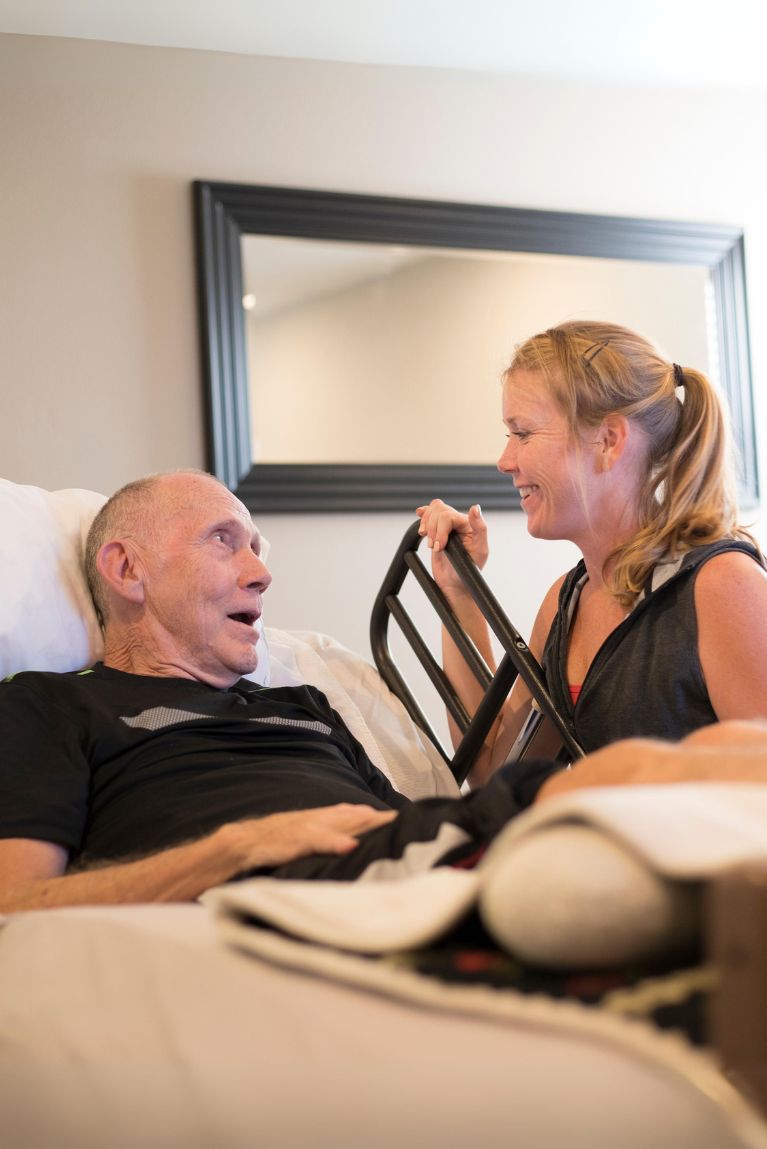
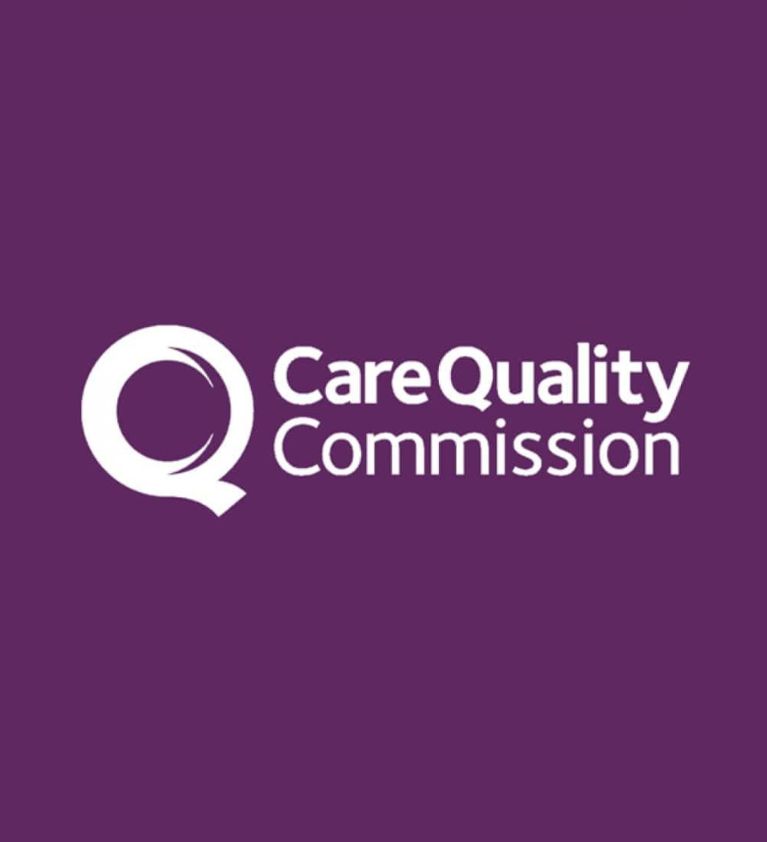

SJOG answered CQC’s call for consultation on the guidance for providers on the government’s new visiting regulations for care homes, hospitals and hospices, following amendments to the Health and Social Care Act 2008 (Regulated Activities) Regulations 2014: Regulation 9A.
With Covid-19 visiting restrictions continuing to affect at least 35% of UK adults in prolonged isolation, SJOG welcomes this consultation on CQC’s guidance. Regulation 9A explains what providers must do to ensure they respect the right of each person when they are visited and accompanied, for example to medical appointments, following an assessment of their needs and preferences.
While isolation doesn’t always lead to loneliness, it can lead to risk of early mortality, and has been associated with a 50% increased risk of dementia. At SJOG, we recognise that in a post Covid-19 world, measures and precautions are necessary to ensure that visiting and accompaniment can happen safely.
In response to the consultation, we recommended:
- Providing guidance on how to improve communication between all parties involved in decision-making processes, including family, friends and carers.
- Investing in community-based support to address the gaps in provision, including at the weekend and evenings or outside working premises.
- Providing hospitals, care homes and hospices with the necessary guidance and tools, such as training and digital technology solutions, to better determine the most appropriate way to assess that visiting and accompaniment can happen safely.
CQC aim to publish their response to the consultation in early April 2024.
February 2024





